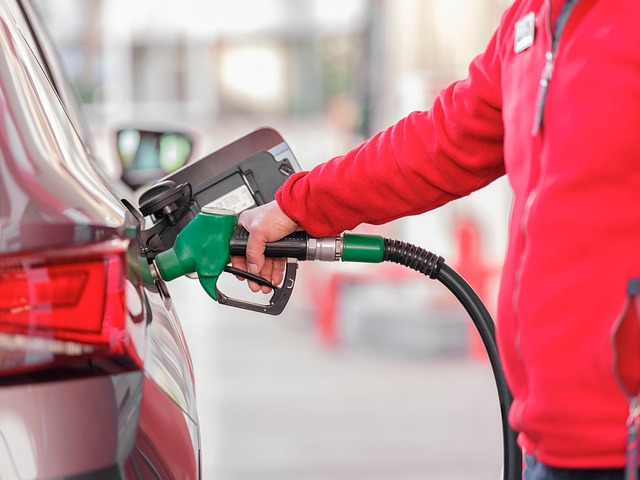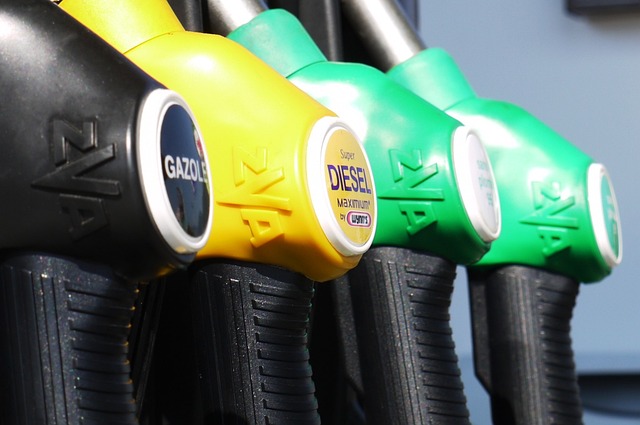Optimizing fuel economy in select gasoline vehicles involves a multi-faceted approach: choosing lightweight, aerodynamic models with efficient engines, adopting eco-conscious driving habits like smooth acceleration and maintaining steady speeds, regular vehicle maintenance to reduce friction and waste, and leveraging advanced technologies like turbocharging and regenerative braking systems. By selecting fuel-efficient options within the $20k price range, drivers can experience improved mileage, reduced emissions, cost savings at the pump, and enhanced sustainability without compromising performance or safety. Case studies of successful innovations like the Toyota Prius and Honda Civic serve as inspiration for future developments in the select gasoline vehicles market.
Looking to maximize fuel economy with your gasoline vehicle? This comprehensive guide breaks down effective strategies to enhance your mileage. From understanding the fundamentals of fuel economy and choosing the right gasoline vehicle, to refining daily driving habits and essential maintenance tips, we cover it all. Discover advanced technologies designed for improved efficiency and explore real-world applications through compelling case studies. Learn how to select gasoline vehicles that offer optimal performance and reduced fuel costs.
- Understanding Fuel Economy: What It Means for Gasoline Vehicles
- Choosing the Right Gasoline Vehicle: Factors to Consider for Better Mileage
- Daily Driving Habits for Enhanced Fuel Efficiency
- Maintenance Tips to Improve and Maintain Fuel Economy
- Advanced Technologies in Gasoline Cars for Improved Mileage
- Real-World Applications: Case Studies of Successful Fuel Economy Optimization
Understanding Fuel Economy: What It Means for Gasoline Vehicles

Understanding Fuel Economy refers to optimizing the efficiency of a Select Gasoline Vehicles’ fuel utilization. It’s about maximizing miles per gallon, reducing emissions, and saving money at the pump. For gasoline cars with advanced safety features, this involves balancing powerful engines with lightweight materials, aerodynamic designs, and intelligent transmission systems. These innovations allow drivers to navigate distances while minimizing the amount of gasoline consumed.
When considering hybrid electric vehicles (HEVs) or even exploring gasoline cars under 20k, fuel economy becomes a key differentiator. HEVs combine a traditional engine with an electric motor, allowing for regenerative braking and efficient power delivery. This technology significantly enhances fuel economy compared to conventional gasoline cars. For budget-conscious buyers, opting for fuel-efficient gasoline vehicles doesn’t have to compromise on performance or safety; it offers an eco-friendly and cost-effective driving experience.
Choosing the Right Gasoline Vehicle: Factors to Consider for Better Mileage

When looking to enhance fuel economy, one crucial step is choosing the right gasoline vehicle. Several factors can help you select an efficient and powerful gas car that also aligns with your budget. Firstly, consider the vehicle’s engine size and type; smaller, more modern engines often offer better mileage. Secondly, opt for lightweight models as they require less fuel to accelerate and maintain speed.
Additionally, explore gasoline cars under $20k known for their sustainability—a smart financial decision and a step towards reducing environmental impact. These options prove that achieving efficient performance doesn’t always demand a hefty price tag. Remember, the right choice depends on your needs, ensuring you drive not just a vehicle but a sustainable and cost-effective one.
Daily Driving Habits for Enhanced Fuel Efficiency

Adopting eco-conscious driving habits can significantly improve fuel economy in your select gasoline vehicle. Start by smoothly accelerating and decelerating, avoiding sudden stops or jerky movements. Maintaining a steady speed, typically between 50-60 mph, optimizes fuel efficiency. Aggressive driving, including rapid acceleration, leads to increased fuel consumption.
Additionally, consider incorporating regular breaks during longer trips. Idling for extended periods consumes fuel unnecessarily; turn off the engine and take breaks every 20-30 minutes. For family friendly gas powered vehicles, these practices not only enhance fuel economy but also contribute to a smoother ride and reduce wear on your vehicle’s components, promoting long-term sustainability in transportation choices.
Maintenance Tips to Improve and Maintain Fuel Economy

Regular maintenance plays a significant role in enhancing fuel economy for select gasoline vehicles. One of the key aspects is keeping your engine well-oiled and clean. Regular oil changes ensure optimal engine performance, reducing friction and minimizing energy wastage. Additionally, maintaining proper tire pressure is essential; underinflated tires can lead to higher fuel consumption. Many modern gasoline cars come equipped with advanced safety features that not only enhance driver assistance but also contribute to better fuel economy through precise control systems.
Apart from these, focusing on eco-friendly driving habits makes a difference. Accelerating smoothly and avoiding sudden stops or starts can significantly improve mileage. Utilising engine braking by downshifting manually during descents instead of relying solely on brakes reduces energy loss. Moreover, removing excess weight from your vehicle improves fuel efficiency, making it a simple yet effective step towards greener gasoline alternatives and an eco-friendly driving experience.
Advanced Technologies in Gasoline Cars for Improved Mileage

In today’s world, consumers are increasingly looking for ways to maximize fuel economy in their gasoline vehicles. Advanced technologies play a pivotal role in achieving this goal. Many modern cars come equipped with sophisticated engines designed to deliver both high performance and improved mileage. For instance, efficient and powerful gas cars often feature turbocharging, direct injection, and variable valve timing, which optimize fuel combustion and reduce emissions. These technologies not only enhance performance but also contribute to better fuel economy, making them a popular choice among drivers seeking both style and sustainability.
When considering select gasoline vehicles, it’s worth noting that advancements in materials science have led to lighter components, such as aluminum and high-strength steel, which reduce overall vehicle weight. This weight reduction is a key factor in improving fuel efficiency. Additionally, modern transmissions, including continuously variable transmission (CVT) and dual-clutch automatic systems, enable smoother gear shifts, minimizing power losses during acceleration. These innovations contribute to the overall appeal of affordable luxury gas sedans, offering drivers both comfort and commendable fuel economy figures.
Real-World Applications: Case Studies of Successful Fuel Economy Optimization

In the real-world application of fuel economy optimization, numerous case studies highlight the successful integration of efficient practices in select gasoline vehicles. These examples demonstrate that improving fuel efficiency is not just a theoretical concept but a tangible goal achievable through innovative design and smart engineering. For instance, modern gasoline car designs prioritize lightweight materials, aerodynamic shapes, and advanced engines, resulting in vehicles like the Toyota Prius and Honda Civic, renowned for their exceptional fuel optimized gasoline vehicle performance.
These best gasoline cars for fuel efficiency not only showcase cutting-edge technology but also represent a paradigm shift in automotive engineering. By focusing on minimizing drag, optimizing combustion processes, and employing regenerative braking systems, these fuel-efficient vehicles offer practical solutions to reduce energy wastage. Such case studies serve as inspiration and roadmap for future developments, encouraging the automotive industry to embrace sustainable practices and deliver more fuel optimized gasoline vehicles to the market.
In conclusion, optimizing fuel economy in gasoline vehicles isn’t just about saving money at the pump; it’s a multi-faceted approach involving thoughtful vehicle selection, smart driving habits, regular maintenance, and embracing advanced technologies. By implementing the tips outlined in this article, including selecting the right gasoline vehicles, adopting efficient daily driving habits, maintaining your car properly, and exploring new technologies, you can significantly improve your fuel economy and contribute to a more sustainable future.
